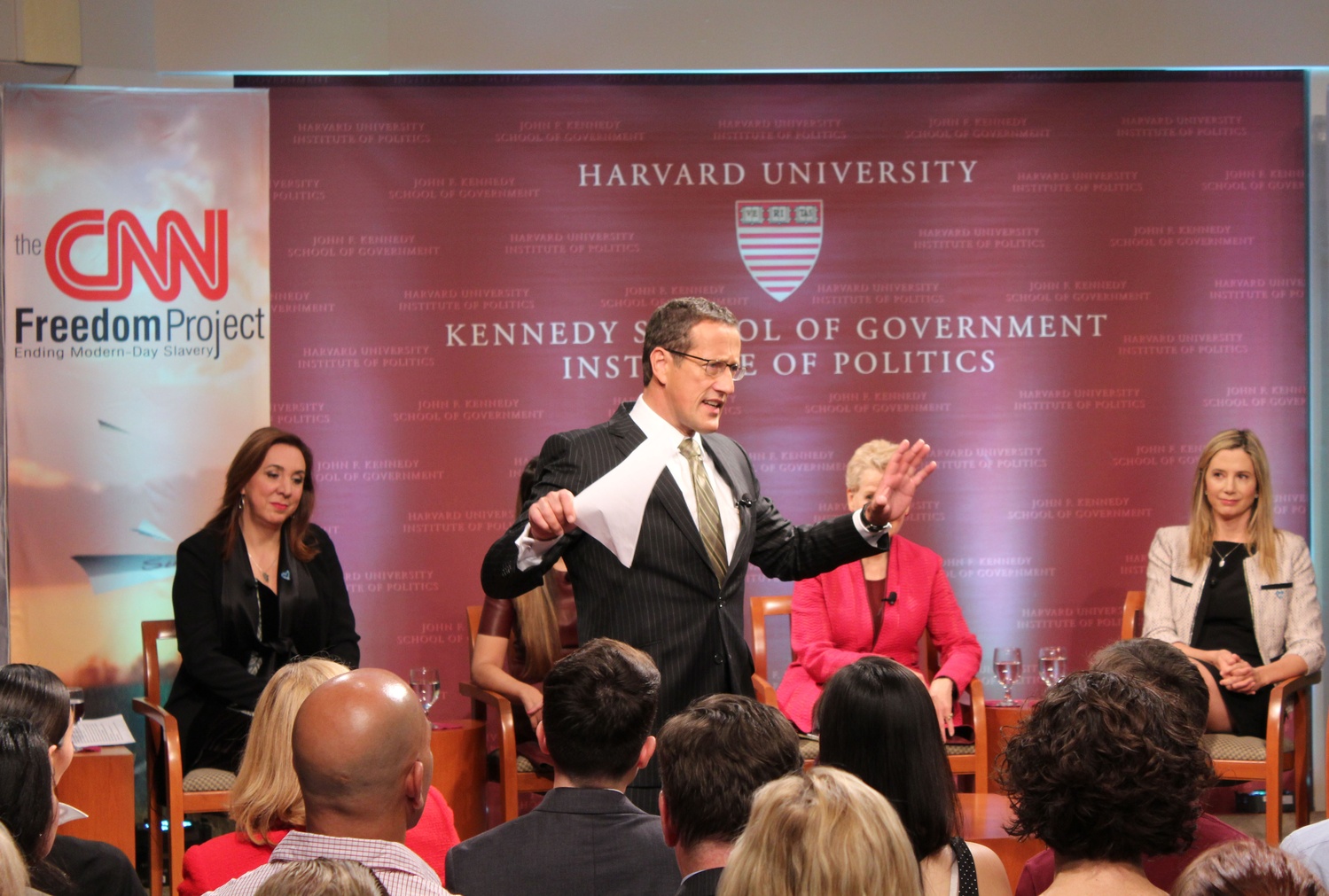
News
Harvard Researchers Develop AI-Driven Framework To Study Social Interactions, A Step Forward for Autism Research

News
Harvard Innovation Labs Announces 25 President’s Innovation Challenge Finalists

News
Graduate Student Council To Vote on Meeting Attendance Policy

News
Pop Hits and Politics: At Yardfest, Students Dance to Bedingfield and a Student Band Condemns Trump

News
Billionaire Investor Gerald Chan Under Scrutiny for Neglect of Historic Harvard Square Theater
Panelists Discuss Exploitation and Trafficking at JFK Forum

Setting the tone at the John F. Kennedy Jr. Forum on Wednesday, Mira K. Sorvino ’89, an Academy Award-winning actress and United Nations Office on Drugs and Crime Goodwill Ambassador to Combat Human Trafficking, recounted a terrible tale.
A young woman Sorvino had interviewed who had been trafficked and raped innumerable times between the ages of 12 and 16 sat stoically and described her trafficker’s punishment for her disobedience: taking a hot iron to her and her baby’s face.
Sorvino was one of five panelists who discussed the problem exploitation and modern slavery at the event, which CNN broadcasted as part of its Freedom Project, a program created to prevent human trafficking and advocate for victims of exploitation.
“I was exploited in the sex industry in Germany as a teenager,” said Rachel Lloyd, founder and CEO of Girls Educational and Mentoring Services, an organization that serves women and girls who have been sexually exploited. Lloyd added that she saw similarities between her own experiences and those of girls in the U.S.
Several times during the program, the panelists interrupted the moderator, Richard Quest of CNN International, and voiced their disagreements with him and each other. At one point, Quest highlighted Lloyd’s refusal to use the word “prostitution.”
“The word ‘prostitute’ makes it sound like it is who you are,” Lloyd said. “When you have been exploited...it is something that happened to you. It’s something you can overcome. It doesn’t define you.”
Swanee Hunt, the former U.S. ambassador to Austria and a professor at the Kennedy School of Government, continued to turn the conversation back on people who purchased the services of the exploited.
“You have the traffickers, you have the girls, and then you have these guys who are purchasing,” Hunt said. “They might be at your living room table; they might be sitting in church with you.”
Sorvino said she believes that one long-term solution to the problem of modern-day slavery is education.

“It’s absolutely essential because it raises the rate of discovery so much. Many high schools don’t have human trafficking as part of their curriculum, and so at-risk kids don’t have that knowledge of how to avoid it,” she said.
The forum ended with Quest directing the audience to take the pieces of paper placed under their chairs, fold them into paper airplanes—representative of the CNN Freedom Project’s hashtag, “#FlyToFreedom”—and make a pledge to advocate for exploited people, before tossing them into the air.
Want to keep up with breaking news? Subscribe to our email newsletter.
